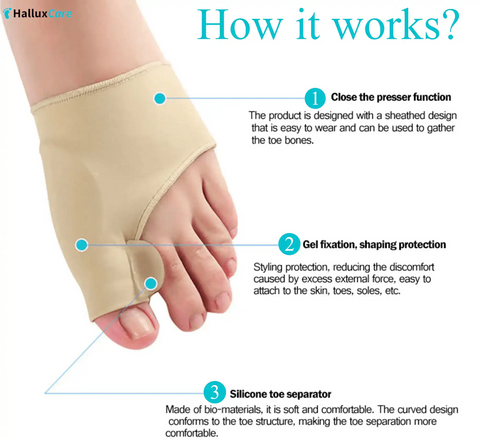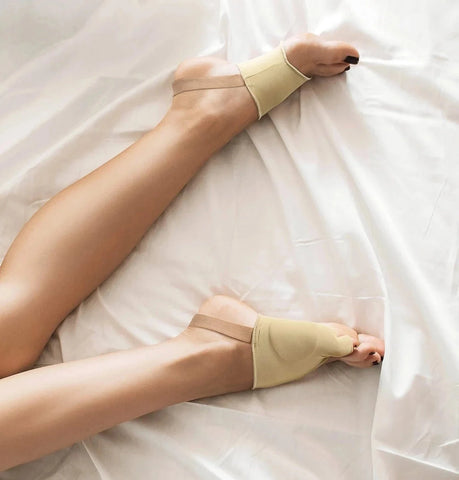Should You Consider Bunion Surgery? Insights from Real Experiences and Smart Solutions
Last Updated: June 2025
Written by: Dr. Casey Morgan, DPM – Board-Certified Podiatric Surgeon
Key Takeaways
- Bunion surgery may be necessary if pain interferes with daily life, mobility, or shoe comfort.
- Orthopedic surgeons are often better suited for severe or hypermobile bunions than podiatrists.
- Non-surgical solutions like orthopedic sleeves can significantly reduce pain and prevent progression.
- Post-surgical recovery includes downtime, therapy, and footwear changes—plan accordingly.
- Acting early can prevent long-term damage and complications.
What the Reddit Comment Taught Us About Bunion Surgery
A 25-year-old Redditor shared their candid experience on the r/bunions subreddit after dealing with bunions for over two years. They emphasized:
- Consulting an orthopedic surgeon instead of relying solely on a podiatrist.
- Not delaying surgery if symptoms are worsening.
- The regret of waiting too long due to job-related constraints.
Their story echoes what many foot specialists emphasize: early intervention can prevent prolonged discomfort and structural damage.
“I wish I hadn’t waited so long. The bunion got worse, and now recovery is harder.” — Reddit user
When Should You Consider Bunion Surgery?
Surgical bunion correction, also known as a bunionectomy, may be the best course of action for certain patients. According to the American College of Foot and Ankle Surgeons (ACFAS), surgery is often recommended when conservative treatments fail and symptoms affect daily function.1
Consider surgery if:
- You have severe or hypermobile bunions.
- You experience chronic pain, even with supportive footwear.
- Toe overlap, skin irritation, or joint stiffness is worsening.
- You’ve tried non-surgical methods without sufficient relief.
- Your bunion is impacting your quality of life or ability to work.
A study in The Journal of Foot and Ankle Surgery found that surgical outcomes are generally positive when performed under the right clinical conditions.2
Not Ready for Surgery? Try These Non-Invasive Options:
4.9 ⭐⭐⭐⭐⭐ ( 1843 reviews )
Orthopedic Surgeon vs. Podiatrist: Who Should You See?
Both podiatrists and orthopedic surgeons are qualified to treat bunions—but their approaches and specialties differ.
Orthopedic Surgeons:
- Specialize in bones, joints, and skeletal alignment.
- Ideal for complex, hypermobile, or severe bunions.
- Often trained in advanced reconstructive techniques.
Podiatrists:
- Experts in foot and ankle conditions.
- Ideal for early-stage bunion care, orthotics, and conservative treatment.
- May also perform surgery, but training varies.
According to the American Orthopaedic Foot & Ankle Society (AOFAS), patients with significant deformity or instability may benefit most from orthopedic evaluation.3
Pro Tip: Start with a podiatrist for diagnosis and conservative care, then consult an orthopedic surgeon if surgery becomes a consideration.
What to Expect After Bunion Surgery: A Realistic Look
Post-surgical recovery is often manageable, but knowing what to expect helps you plan better:
- 🛌 Recovery time: 6–12 weeks of limited mobility.
- 💊 Pain management: Prescription or over-the-counter medications.
- 🏃♀️ Physical therapy: Essential for regaining strength and range of motion.
- 👟 Footwear transition: Start with surgical boots, then shift to wide, supportive shoes.
According to Mayo Clinic, full recovery may take up to 6 months, and swelling can persist even longer.4
The Smart Alternative: Non-Surgical Relief That Works
If your bunion hasn’t reached the surgical stage, or you're looking to delay surgery, conservative tools like correction sleeves can make a meaningful difference.
Benefits of Orthopedic Bunion Correction Sleeves:
- Promote toe realignment over time.
- Ease friction and pressure inside your shoes.
- Provide daily pain relief and joint cushioning.
- Simple to wear and discreet under socks or footwear.
“I’ve worn mine daily for 3 weeks, and I can already walk longer without pain.” — Verified HalluxCare user
Practical Tips for Managing Bunion Pain Without Surgery
- 👟 Choose wide-toe-box or orthopedic footwear.
- 🧦 Use bunion sleeves or spacers to reduce irritation.
- ❄️ Apply ice packs after extended walking or standing.
- 🧴 Massage with anti-inflammatory oils like castor oil.
- 🏋️♀️ Strengthen foot muscles through toe stretches and balance exercises.
Recommended Products from HalluxCare
If you're looking for relief from bunion pain, consider using the Orthopedic Bunion Pain Relief & Correction Sleeve , which provides support and helps to alleviate discomfort.
For additional protection, the Tailor's Bunion Bunionette Pain Relief Protection Sleeves are designed to offer comfort and protection for bunionette pain.
To nourish and soothe the skin around bunions, as well as to promote healthy hair, consider the Jamaica Black Castor Oil Soothing Oil . Known for its moisturizing and anti-inflammatory properties, it helps alleviate discomfort around bunions and supports hair growth and scalp health.
FAQs About Bunion Surgery and Pain Relief
🔹 Is bunion surgery painful?
Most patients experience moderate post-operative pain, which can be managed effectively with medication.
🔹 Can bunions go away without surgery?
No. Bunions are progressive deformities and won’t reverse on their own, but symptoms can be managed with non-surgical treatments.
🔹 How long does it take to walk after bunion surgery?
Most people can bear weight within a few weeks, but full mobility may take several months.
🔹 Are bunion sleeves effective?
Yes, when used consistently, medical-grade sleeves can reduce pain and prevent worsening of the bunion.
🔹 Who should I see first—podiatrist or orthopedic surgeon?
Start with a podiatrist for diagnosis. If surgery is necessary, consider an orthopedic surgeon for a second opinion.
Final Thoughts: Take Control Sooner, Not Later
The Reddit user's story is a powerful reminder that bunions won’t improve on their own—and delaying treatment can lead to regret. Whether you’re exploring surgery or conservative care, taking early action can preserve your comfort, mobility, and quality of life.
Your journey matters. Have you had surgery or found a bunion product that works for you? Share your thoughts in the comments—your insights may help someone else take their first step toward relief.
Disclaimers & Disclosures
This article is for informational purposes only and does not constitute medical advice. Always consult with a licensed healthcare provider before starting any new treatment or surgical plan.
Some links in this article are affiliate links, meaning HalluxCare may receive a commission if you make a purchase through them. This comes at no additional cost to you and helps support our content.
Sources
- American College of Foot and Ankle Surgeons. “Bunion: Hallux Valgus.” FootHealthFacts.org. https://www.foothealthfacts.org/
- Roukis TS, et al. “Outcomes following bunion surgery.” The Journal of Foot and Ankle Surgery. https://www.jfas.org/
- American Orthopaedic Foot & Ankle Society. “What Is a Bunion?” https://www.aofas.org/
- Mayo Clinic. “Bunion Surgery.” https://www.mayoclinic.org/tests-procedures/bunionectomy/about/pac-20393202




